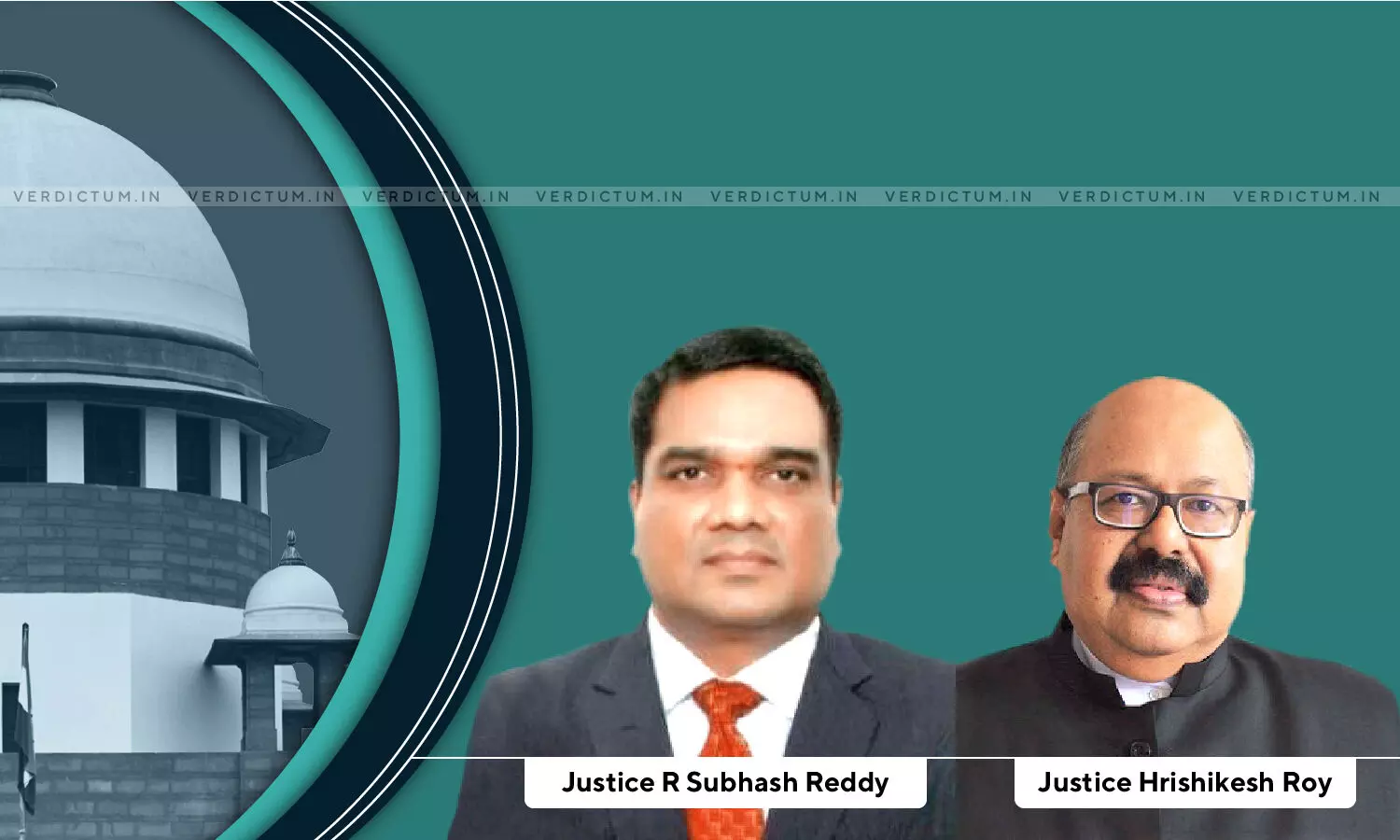
Supreme Court Quotes From 'Oliver Twist' While Enhancing Compensation In Motor Accident Claim Case
 |
|A two-judge Bench of Justice R. Subhash Reddy and Justice Hrishikesh Roy has held that the Motor Vehicles Act is in the nature of social welfare legislation and the compensation awarded under it must be 'justly determined.' The Bench observed that the claim of the victim for enhancement "must not be viewed as a modern day Oliver Twist, having to make entreaties as the boy in the orphanage in Charles Dickens's classic, "Please Sir, I want some more".
The Court observed, "While the money awarded by Courts can hardly redress the actual sufferings of the injured victim (who is deprived of the normal amenities of life and suffers the unease of being a burden on others), the courts can make a genuine attempt to help restore the self-dignity of such claimant, by awarding 'just compensation."
An appeal was preferred against the judgment of the Kerala High Court which had enhanced the compensation awarded by the Tribunal to the Appellant-Claimant (Injured Victim) from Rs. 5,74,320 to Rs. 14, 31,752/-.
In this case, the Appellant suffered serious injuries when his motorcycle which he was riding pillion was hit by a car. Both the riders were injured, and the Appellant suffered head injuries also. The Appellant was bedridden, totally immobilized. He also suffered from severe impairment of cognitive power and 69% permanent disability.
The Motor Accidents Claims Tribunal, Thrissur had awarded Rs. 5,74, 320 as compensation to the Appellant-Claimant by noting that he was just 21 years old and had an earning capacity of Rs. 4500/- per month when suffered an accident.
The Appellant-Claimant contended before the Court since he had suffered 69% permanent disability and was unable to perform everyday activities, he required constant support even for the confined life that he was leading. Hence, a plea was made for adding expenses for services of bystander/ attendant for the severely impaired claimant.
The Appellant prayed for an enhanced compensation to be awarded under the head of future medical expenses, as the Appellant had suffered 100% loss of future earnings.
While the Respondent-Insurance Company argued that since no evidence was produced by the Appellant for the actual expenses incurred for service of attendant, no further claim was merited under the head.
The Apex Court after considering that the Appellant had suffered severe cognitive impairment and 69% disability and also the additional expenses incurred, enhanced the future medical expenses to Rs. 3, 00,000. The Court observed that the sum awarded by the High Court under this head appeared to be on the lower side.
The Bench further opined, "The Courts should strive to provide a realistic recompense having regard to the realities of life, both in terms of assessment of the extent of disabilities and its impact including the income generating capacity of the claimant."
The Court also noted that even though the physical disability was 69%, the functional disability of the Appellant was 100% in terms of the loss of earning capacity.
"The extent of economic loss arising from a disability may not be measured in proportions to the extent of permanent disability," the Court held.
The Court, for determining the effect of permanent disability on future earning capacity, referred to the 3 steps which were laid in the Raj Kumar Vs. Ajay Kumar and Anr. and was upheld in Chanappa Nagappa Muchalagoda vs.Divisional Manager, New India Insurance Company Limited –i) The first step was to ascertain what activities the claimant could carry on in spite of the permanent disability and what he could not; ii)The second step was to ascertain his avocation, profession and nature of work before the accident, including his age; and iii) The third step was to find out if the claimant was totally disabled from earning, if he could effectively carry on the activities or if he was prevented or restricted from discharging his previous functions but could carry some of them to earn a livelihood.
In the light of these observations, the Court enhanced the compensation awarded to the Appellant-Claimant to Rs. 27, 67, 800/- and ordered for its payment within a period of six weeks.
After discussing the merits of the case and ordering enhanced compensation, the Court made the following observations :–
1) Permanent disability not only impairs cognitive ability but there are also other non-quantifiable implications for the victim.
2) A healthy person turns into an invalid, deprived of normal companionship, and incapable of leading a productive life and makes one suffer the loss of self-dignity.
3) Efforts must be made to help the claimant and recognize his actual needs by accounting for ground realities.
4) The plea of the victim suffering from a cruel twist of fate, when asking for some more, is not extravagant but is for seeking appropriate recompense to negotiate with the unforeseeable and the fortuitous twists is his impaired life.
Accordingly, the appeal was allowed and the impugned judgment of the High Court was modified.
Click here to read/download the judgment